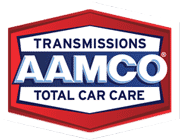Mentioning the word “transmission” can be scary. Does it immediately make your heart rate climb, or your palms sweat? So, what on Earth is a Transmission Control Module and what does it do? How do you know if there is something wrong with the TCM? We are going to help answer these questions by breaking down the function and role of a transmission control module.
Related: Is Your Transmission Acting Up?
Related: To Replace or Repair?
What is a Transmission Control Module?
You already know your transmission is responsible for funneling the power your engine creates to the wheels. In laymen’s terms, your transmission is what makes your car move, and without it your vehicle would be a paperweight. But even the transmission needs support to make sure it is doing its job properly and efficiently. That’s where the transmission control module comes into the picture! If the transmission had a brain, it would be the TCM.
The TCM is an electronic mechanism that collects data from the transmission, interprets signals sent from other parts of the vehicle (i.e. throttle position sensor, turbine speed sensor, fluid temperature sensor, etc.), and helps to regulate the gears shifting. It helps regulate how and when your vehicle shifts gears and changes speeds. In addition to supporting the transmission, the TCM may send OBD-II codes that alert you to any issues going on with the transmission. One common error to display is the check engine light.

What About Manual Transmissions?
If you are one of the lucky ones who drives a manual vehicle, you don’t have to worry about any problems with this component. Since its primary function is to handle the timing of gear shifts, any manual drivers shift the gears on their own, the TCM is not necessary. You, the driver, would be considered the transmission control module!
How to Identify Warning Signs of a Failing TCM
The chances that you will need to replace this part during the lifespan of your vehicle is low. Although this mechanism is critical to your vehicle’s ability to drive, the part itself has been built to last through the years, the miles, heat, and friction. There are a lot of factors to consider, such as driving habits and vehicle mileage, but it is possible for extreme temperature fluctuations or overuse to leave the TCM compromised and vulnerable to damage.
Some of the most commonly reported symptoms of a bad TCM include:
- Check Engine Light – You thought we wouldn’t mention this again? This light is easy for most people to ignore, but it serves an important purpose… to alert you to an issue. An ODB-II scanner will tell you which codes are being thrown. These codes determine what system requires attention. Some error codes specific to a faulty TCM include p codes: P0613, P0700, P0706, etc.
- Erratic Shifting – The automatic transmission relies on the TCM to shift smoothly. Unless your vehicle has a manual override option, and it is engaged, your car should be shifting effortlessly. If your car has the hiccups, you need to get to the shop right away.
- Stuck in Gear – As you drive along, you shouldn’t notice much of a transition between speeds, but you’ll certainly notice if your car isn’t shifting at all. If your car is stuck in neutral or first gear, you may be dealing with a bad TCM.
- Poor Fuel Economy – It is important to note this is a good baseline for identifying a variety of issues under the hood. Anytime you notice a change in MPG, you should be on alert. A faulty TCM will affect the way your engine shifts, therefore decreasing fuel efficiency.
If you have noticed changes in your vehicle’s performance, or have experienced any of the signs above, your attention to detail could save you a small fortune. AAMCO Minnesota’s multi-point inspection & diagnostics service can help identify any problems by reviewing every major system in your car, head to tail. You’ll have a comprehensive overview of your vehicle’s health.
What if the module is damaged or broken?
Don’t stress out, we can help! In the event the TCM is damaged, or completely broken, you should be prepared to have the entire module replaced. The cost and labor associated with replacement differs depending on the make and model of your vehicle, but the peace of mind you’ll receive knowing the problem is solved is invaluable. If you think there may be an issue with your transmission control module, don’t gamble on your safety and schedule an appointment now!
AAMCO Minnesota: Keeping You on the Move
There are plenty of times you’ll be able to address a problem later down the line, but not if you are questioning whether your transmission is working properly. A broken transmission control module is a problem you can solve, and we are just the experts to get you back on the road. Schedule an appointment today at your favorite AAMCO Minnesota location – or book online to get 5% off – and let us show you guy people have been trusting us with their vehicles for generations.
More from our Blog
5 Symptoms that May Point to Your Power Steering Failing
Love cruising down winding roads? Or do a lot of city driving? Then you know the importance of proper steering and precise handling while driving. As parts in your car’s power steering system wear out or the system starts to fail, there are several common symptoms to...
Common Signs You May Be Due for a Transmission Repair
Don’t let transmission trouble throw a wrench in your day. You can avoid more serious transmission repairs by paying attention to the signs and symptoms that your transmission may need attention from a professional mechanic. Some of the early signs are easy to push...
5 Common Reasons Why Your Steering Wheel is Sticking
Whether you love cruising down winding roads or simply need to navigate city streets, you understand the importance of precise steering. If your steering wheel feels stiffer than usual or starts sticking, it can easily get in the way of your car making turns as it...
5 Symptoms that May Point to Your Power Steering Failing
Love cruising down winding roads? Or do a lot of city driving? Then you know the importance of proper steering and precise handling while driving. As parts in your car’s power steering system wear out or the system starts to fail, there are several common symptoms to...
Common Signs You May Be Due for a Transmission Repair
Don’t let transmission trouble throw a wrench in your day. You can avoid more serious transmission repairs by paying attention to the signs and symptoms that your transmission may need attention from a professional mechanic. Some of the early signs are easy to push...
5 Common Reasons Why Your Steering Wheel is Sticking
Whether you love cruising down winding roads or simply need to navigate city streets, you understand the importance of precise steering. If your steering wheel feels stiffer than usual or starts sticking, it can easily get in the way of your car making turns as it...
3 Questions to Determine if You Should Finance Your Transmission Repair
It’s no secret transmission repairs can be expensive. After bringing your car to a transmission shop for diagnostics, how do you know if you should finance your transmission repair? There are a few questions to ask yourself and your mechanic to determine the best...
Schedule An Appointment

Find Your Local Minnesota AAMCO
Call or book an appointment online.
Each AAMCO Minnesota Transmission & Auto Repair Shop is independently owned and operated. Looking for transmission repair services in the Minnesota Twin Cities area?
Navigate our Blog
Recent Posts
Categories
- AAMCO Diagnostics Center
- Air Conditioning
- Blog
- Brakes
- Brakes, Tires, & Suspension
- Check Engine Light
- Colorado Automotive Advice
- Community Involvement
- Electrical
- Electrical
- Engine
- Exhaust System
- Featured Articles
- Infographic
- Maintenance
- Muffler
- Muffler & Exhaust
- news
- Oil Change
- Online Mechanic
- Radiator
- Radiator & Cooling System
- Safety
- Services
- Suspension
- Suspension System
- Total Car Care
- Transmission
- Transmissions
- Videos




